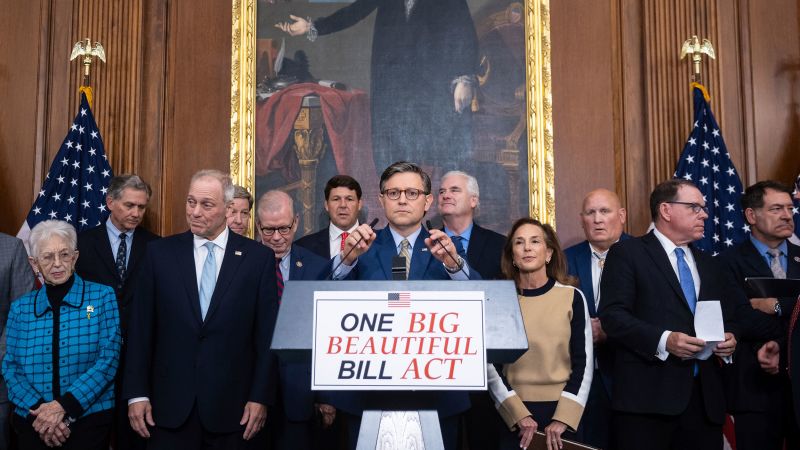Trump's Tax Bill Faces Unprecedented Public Backlash Amid Legislative Struggles

In the labyrinthine corridors of American politics, President Donald Trump’s latest legislative endeavor, colloquially dubbed the 'One Big Beautiful Bill,' is encountering formidable resistance. This legislative proposal, which seeks to extend the 2017 tax cuts, is not merely a routine exercise in governance; it is a bold, albeit contentious, attempt to reshape the fiscal landscape. Yet, as the bill navigates the turbulent waters of Congress, it is met with a wave of public disapproval, marking it as one of the most unpopular legislative efforts in recent history.
The bill’s journey through the legislative process is fraught with challenges. While the House has already passed the measure, Senate Republicans are embroiled in negotiations over critical components such as Medicaid cuts, state and local tax deductions, and spending reductions necessary to offset the bill’s substantial cost. Despite these ongoing deliberations, public sentiment remains overwhelmingly negative. Recent polls from reputable sources such as the Washington Post, Fox News, KFF, and Quinnipiac University reveal a staggering 24-point deficit in public support, with 55% of Americans opposing the bill compared to a mere 31% in favor.
This level of unpopularity is unparalleled in recent legislative history. According to Chris Warshaw, a political science professor at George Washington University, the bill is more unpopular than any major legislation since at least 1990. The only comparable legislative effort was Trump’s earlier attempt to overhaul Obamacare, which also faced significant public opposition and ultimately failed. The current bill’s unpopularity is exacerbated by perceptions that it disproportionately benefits the wealthy while potentially harming lower-income individuals. Polls indicate that a majority of Americans believe the bill will negatively impact those with lower incomes, while benefiting the affluent.
The political implications of this public disapproval are profound. Republican-leaning voters who do not align with the MAGA movement, as well as independents, overwhelmingly oppose the bill. This opposition is not merely passive; strong opponents outnumber strong supporters by a ratio of 3-to-1 among registered voters. Furthermore, the bill’s potential to add nearly $3 trillion to the national debt over the next decade is deemed unacceptable by a significant majority of the electorate.
As the legislative process unfolds, the Republican Party faces a critical decision. The potential political fallout from passing such an unpopular bill could be significant, yet the party remains committed to extending the tax cuts. The question remains whether they can successfully navigate the complex political landscape and mitigate the public’s concerns. The stakes are high, and the outcome of this legislative battle will undoubtedly have far-reaching implications for the political future of the Republican Party and the nation as a whole.
🔮 Fortellr Predicts
Confidence: 80%
Given the unprecedented backlash against the tax bill tied to the extension of Trump's 2017 tax cuts, its future seems uncertain amidst legislative hurdles. Historical patterns show that public unpopularity can significantly impact legislative outcomes, as seen with the failed 2017 healthcare overhaul attempt. The bill's proposed Medicaid cuts and the projected increase to the national debt are critical sticking points that may not only alienate independent voters but also provoke divisions within the Republican Party itself. With the GOP holding a slim majority in both the House and Senate, the bill faces a precarious path. If significant concessions are made, particularly concerning the proposed Medicaid and spending cuts, there might be potential for a compromise that could make the bill palatable enough to secure passage. However, failure to address these issues could lead to substantial political fallout, with the party facing backlash from constituents ahead of upcoming elections, potentially weakening its majority. Furthermore, if opposition remains steadfast and public perception continues to sour, the chance of the bill being shelved or heavily amended rises considerably. Republican leadership will likely need to navigate these waters delicately, balancing party unity with public opinion and the legislative mandate to manage economic policy responsibly.